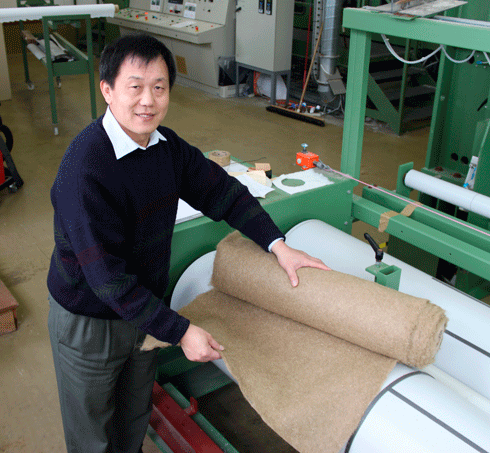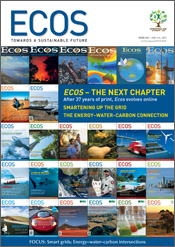
|
Published: 4 July 2011
Biodegradable weed mats from farm waste
Agricultural wastes could soon be turned into biodegradable weed mats, through a partnership between CSIRO’s Future Manufacturing Flagship and garden products companies Richgro and Go Grow.

|
|
Dr Menghe Miao in the nonwovens mill at CSIRO in Geelong, Victoria, with a sample of the biodegradable weed mat. Credit: CSIRO
|
The weed mats are being designed to overcome problems with existing products made from impervious polythene materials. Current mats impede rainfall penetration and earthworm activity, and are not biodegradable, contributing to plastic pollution.
Biodegradable weed mats suppress weed growth effectively, allow water penetration, minimise soil water evaporation and encourage worm activity. They also decompose, returning vital organic matter to the soil.
Stubble from crops such as linseed, flax and industrial hemp is being used to make the mats. These materials contain about 25 per cent strong bast fibres, the same fibres used for making linen fabrics.
The research team, headed by Dr Menghe Miao, will conduct field trials in New South Wales and Western Australia with Richgro and Go Grow to see how well the new mats work. The study will also analyse the economic benefits to farmers.



